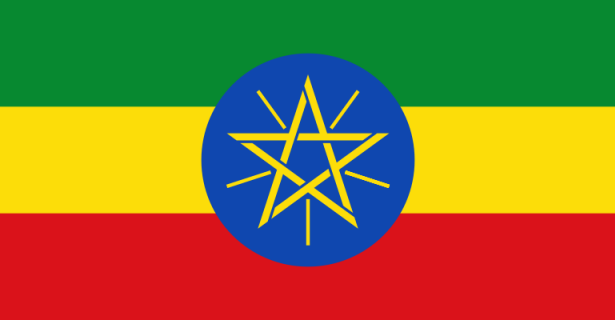Several members of PPRI recently visited East Africa scholar Alex de Waal at the World Peace Foundation to discuss issues concerning Ethiopia, and we found his insight to be very valuable. We interviewed him for an hour, and as a result we were able to speak a good deal about the topic I was most interested in: Ethiopia post-Meles. To further clarify, Meles Zenawi was the undisputed strongman of Ethiopia since 1991 until he died unexpectedly last August. Mr. de Waal, who was actually leaving for Ethiopia the next day, has studied the country for the past thirty years and actually spent time with Meles, allowing us an interesting perspective on his vision and intentions. Given the country’s politics revolved around one man for the entirety of the post-Cold War period, his legacy remains mixed and contradictory. With credentials as the head of the rebel forces that overthrew the Dergue junta, he’s been subject to adulation for Ethiopia’s growth miracle, as well as condemnation for his restriction of civil liberties and human rights abuses. The reality is of course multifaceted and complex, but his legacy aside, his death marks the end of an era in the history of Ethiopia, leaving the country’s future more difficult to foresee.
But as of yet, the power vacuum envisaged after his death has thankfully failed to materialize. The main reason however is that Ethiopia’s new leadership simply isn’t new. Zenawi rose to power as the political commissar of the guerilla movement, leading the TPLF (Tigrayan People’s Liberation Front) as well as the ruling EPRDF coalition (to which the TPLF belongs) to predominance. He completely consolidated power around himself after 2001, following the end of a brutal war with Eritrea, by eliminating opposition and promoting only loyalists, thereby terminating the TPLF’s historically collegial and collective style of leadership, where he had once served as primus inter pares. He instead adopted the Chinese model of governance feeling that the magnitude of Ethiopia’s diversity could pull it apart, envisioning a one-party state in which core leadership remained stable, but rotated through elections. This was reaffirmed by Ethiopia’s new president Hailemariam Desalegne, who recently pledged continuity in government policy and in carrying on Zenawi’s legacy. This is also reflected more generally by the fact that real power is concentrated specifically within the old guard of the TPLF.
In vowing to continue Meles’ vision for the country, Hailemariam is inheriting a government focused on economic progress above all else. Meles had his own singular views on growth and development and his pursuit of such has left a greatly changed country. The spread and impact of investment has been diffused broadly (with the most accruing to Zenawi’s home region of Tigray, and the most troubled being the Somali region), such that, as deWaal convincingly argued, Meles has been economically vindicated for a well-articulated view of development. Further, he noted, it has the legitimacy of being an indigenously African approach and is thus to be taken more seriously than anything else.
Thus the continuity of the old regime is both Ethiopia’s strength and weakness in going forward. There will be no radical shift – as long as the current formula succeeds, the regime will succeed. But therein lies the potential danger: the new leadership may feel it safe to simply parrot Meles, given that many hold power for their credentials of loyalty rather than their competence. Subscribing to his vision without his thinking may produce complacency and preclude flexibility. Correspondingly, if the regime does not see continued economic growth at the pace it has been or fails to consolidate previous gains due to rising inflation or perhaps a deteriorating balance of payments, instability will likely be the result.
Most likely, the status quo will continue until elections in 2015 at which point the opposition may revive, but would likely be put down by a military that has much to gain from the continuity of the regime. As could be expected of the Chinese model, the greatest amount of corruption lies in the state’s control and manipulation of parastatals, in confluence with the government’s strategic political-economic agenda, but in which the military also plays a large role. If the opposition turns to violence as it has done in the past, they will again be quickly put down by the military; any other approach by the opposition will consequently be long-term, assuring continuity for quite some time. Additionally, Meles has left Ethiopia well positioned internationally, as both a leader among African countries and a favorite with the West and China.
As a result, Ethiopia’s growing prosperity seems poised to continue growing, and may well prove resilient. However, maintaining the growth and economic accomplishments to date will not be easy. So in retrospect, Meles Zenawi has been Ethiopia’s most competent leader if just by being the least worst, sacrificing civil rights and plurality for economic performance and the restoration of ‘stability’. Simultaneously a Deng Xiaoping and Enver Hoxha, history will be his judge, but in the meantime, Ethiopia’s immediate future is optimistic.
Gabriel Rojkind '15

